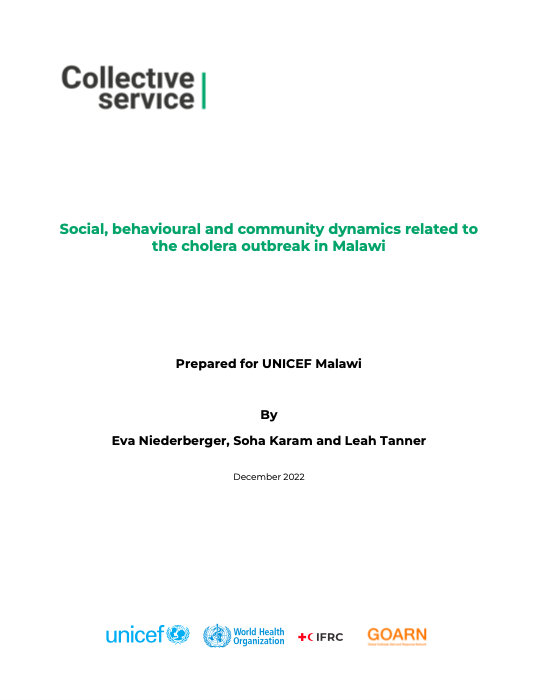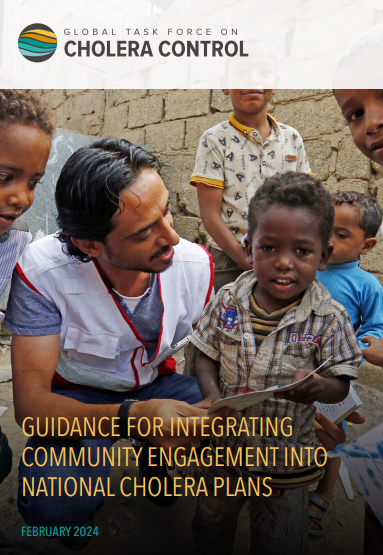Cholera
Since 2021, there has been an increase in cholera cases and their geographical distribution globally. This is due to climate change, conflict, population displacement and poverty, which are limiting people’s access to safe water and sanitation. Trusted, clear and effective communication and engagement approaches are critical to ensure that fear, panic and rumours do not undermine cholera responses. You can use the tools and resources in this section to incorporate CEA into your cholera operations.
Key Resources:
The below tools can be used to incorporate the CEA into the different stages of your cholera response. An explanation of where each CEA minimum action sits in the below programme cycle can be found here. For more information visit the CEA Guide.
1) Needs assessment and context analysis:
2) Planning and design:
3) Implementation and monitoring:
4) Evaluation and learning:
30 March 2020
Sample radio show on cholera and latrines
Type:
ToolOrganization:
IFRCA sample radio show schedule for a show about the role of latrines in fighting cholera, which can be used as part of your Community Engagement and Accountability (CEA) initiatives.
26 March 2020
Sample radio show on cholera
Type:
ToolOrganization:
IFRCA sample radio show schedule for a show about the spread of cholera, which can be used as part of your Community Engagement and Accountability (CEA) initiatives.
27 June 2019
The story of cholera: video
Type:
VideoOrganization:
IFRCAn IFRC video produced in collaboration with the Global Health Media Project, which teaches people about the spread of cholera and how to prepare an oral rehydration solution to treat…
27 June 2019
Cholera in Sierra Leone: mobile cinema
Type:
VideoOrganization:
IFRCAn IFRC video about how mobile cinema is helping to tackle cholera in Sierra Leone.
17 June 2019
Behaviour change communication strategy for cholera and recommendations for sustainability of beneficiary communications activities
Type:
ReportOrganization:
IFRCA behaviour change communication strategy from the Sierra Leone Red Cross Society, in relation to attitudes and practices towards cholera.
15 June 2019
Mobile Cinema programme Sierra Leone
Type:
ToolOrganization:
IFRCA mobile cinema and community drama programme, which forms part of a broader Community Engagement and Accountability programme.
Page 3 of 3



